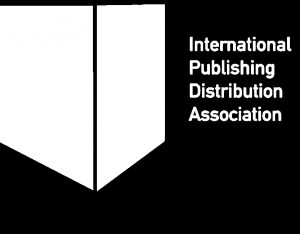- A narrative for reading promotion is needed.
- The present diversification in the forms of reading requires a new definition of book reading.
- Focus on book reading positive externalities.
The three modest proposals are the result of the work carried out in the on-line Readmagine’s 2020 edition. Based on the three documents prepared by Fundación GSR a meeting was held on November 16 with the participation of some of the experts gathered during Readmagine 21.
The three working groups aimed to build brief proposals on:
Policy to promote reading in Europe (coordinated by Mihael Kovač): European policy to support the book industry (coordinated by Enrico Turrin) and Business models for the book (coordinated by José Manuel Anta).
In this video you can follow the presentations corresponding to the proposals for reading promotion in Europe.
The working group on Reading promotion in Europe was integrated by:
- Anne Bergman (FEP, Europe)
- Dörthe Fröhlich (JGU, Germany)
- Luis González (FGSR, Spain)
- Javier Pascual (Madrid City Council, Spain)
- Verónica Reyero (Antropología 2.0, Spain)
- Rapporteur: Mihael Kovač (Beletrina, Slovenia)
As rapporteur of the reading promotion group, Mihael Kovač began his presentation with the idea that the European policy agenda needs new narratives in reading promotion. The foundation for that purpose would be describing what books can do that other media can‘t, in terms of positive impact on persons and society.
Furthermore he said that «we need new definitions of book reading because there is a diversification of the concept». There is reading on paper vs. reading on screen; (Book) reading vs. (book + other) listening; reading linear texts vs. hypertexts or long form reading vs. reading in bursts.
The working group decided that the reading policies in the EU need to focus on a certain kind of reading as a priority: reading promotion should be referred to as “Book reading“, meaning reading long form linear texts.
From the perspective of the design of a new narrative for reading the working group proposed to focus on book reading positive externalities:
- Breadth and depth vocabulary
- Empathy
- Mind focus
- Thinking about complex issues
- Social health & better economy
This group of experts also supported the idea that digital and print can work together or at least be complementary.
The screens are great for:
- Surfing the sea of information
- Fast decision making
- Collaboration
The books are great for:
- In-depth understanding
- Strategic and analytical thinking
- A feel for living together
The last specific proposals on reading promotion were:
- European convergence on reading surveys
- Database on European reading habits
- Database on Publishing stats
- European strategy for a reading promotion policy (with many national variants)
Miha Kovač is professor at the Department of Library and Information Science and Book Studies at the University of Ljubljana. In his publishing career in late eighties and nineties, he worked as editorial director in the two largest Slovene publishing houses, DZS and Mladinska knjiga and as an editorial director of Slovene edition of National Geographic Magazine. He is the author of more than fifty articles and four books on reading and book publishing. His main research interest is publishing and reading statistics. In 2020, he published his first mass-market book Read to Breathe that will be also published in Spanish in early 2022 by editorial Dalya as “Leer es respirar”.





